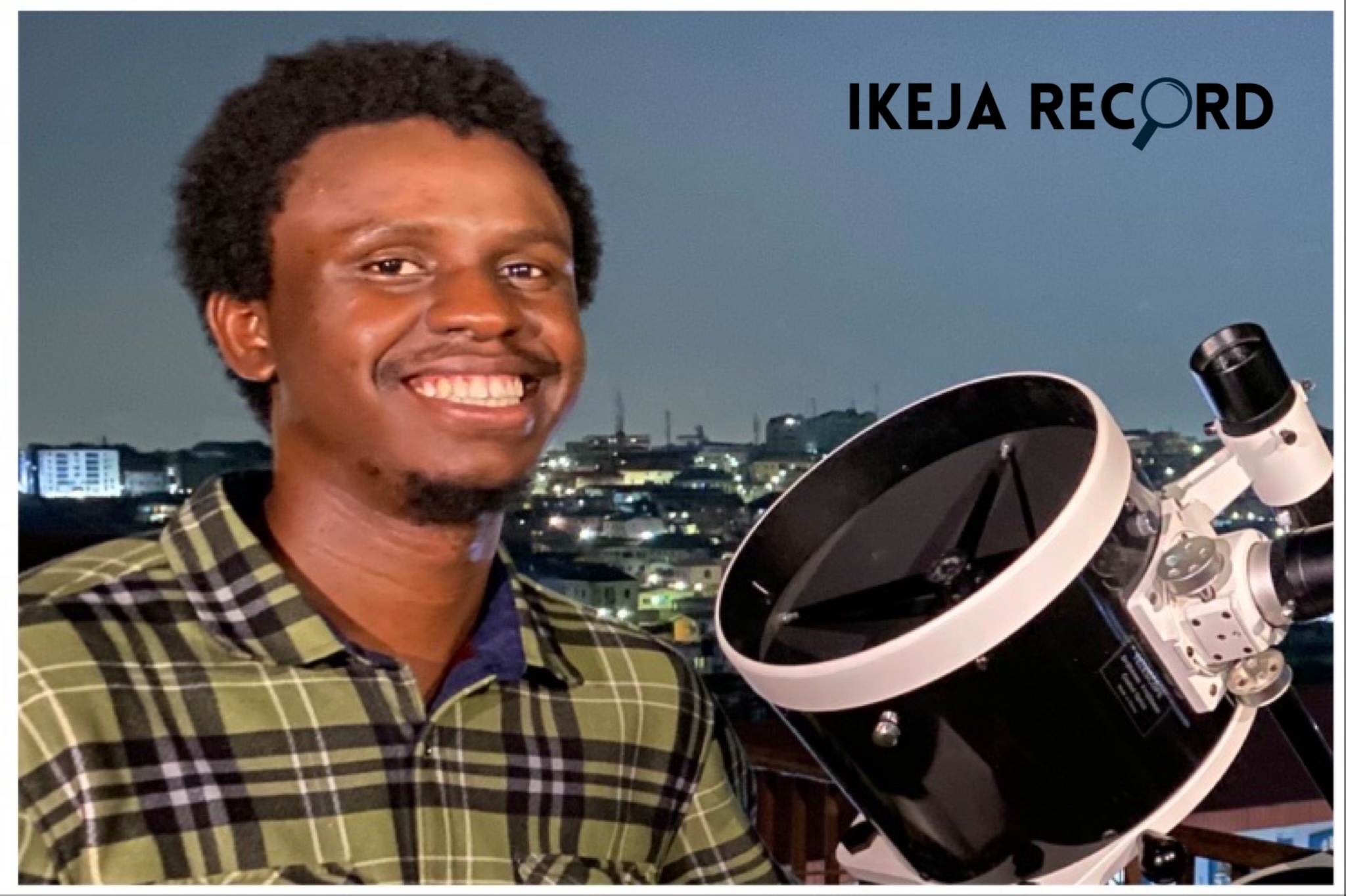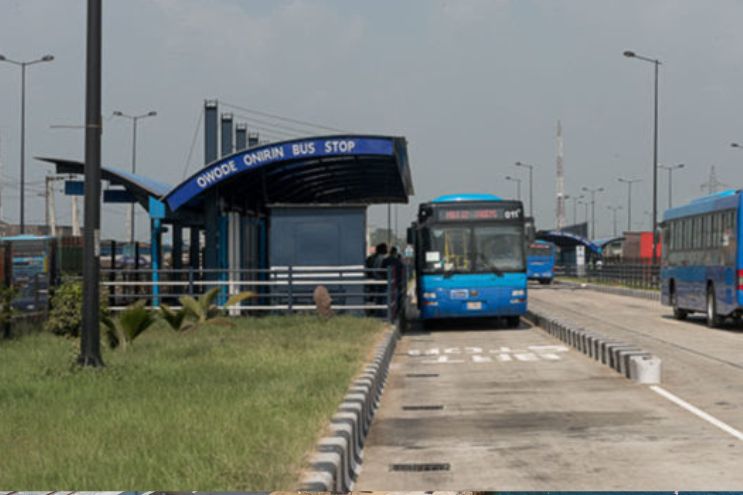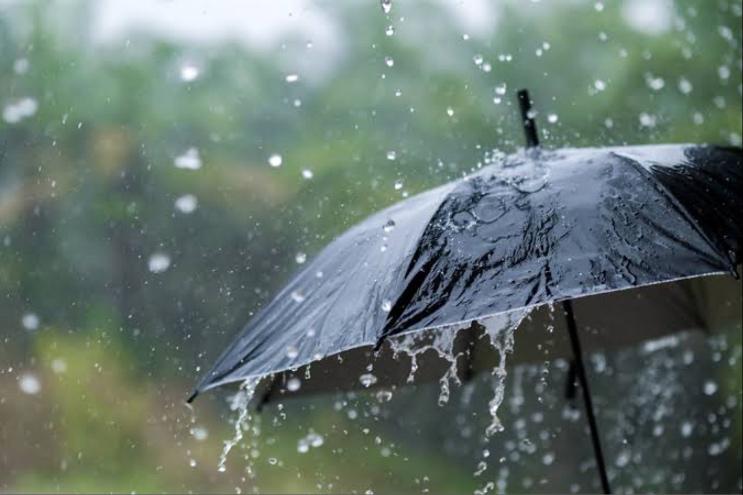
As a child who started coding at the age of 14, tech and space science has always been Damilola Obiokeke’s passion. His quest for knowledge and problem-solving made him a prolific Wikipedian, with over 200 Wikipedia articles to his name.
Realizing the lack of accessible space equipment and education in Lagos, Nigeria, Obiokeke and two friends decided to put their heads together to solve this problem by establishing Space Bar Africa.
In an interview with The Record’s Omon Okhuevbie, he discussed his plans for Space Bar Africa and the future he sees for the Nigerian space industry.
This interview has been edited for clarity and brevity.
Omon Okhuevbie: Please can you share with me a brief history of your background and how you ended up where you are?
Damilola Obiokeke: I have been coding since I was 14, I am a techie. I have always been very intrigued by knowledge. For example, I am a Wikipedian, and I have created over 280 Wikipedia articles. I am very excited about science, and creating products as well. I love creating products, I love creating experiences. I love doing things that not everyone else is doing and building things that everyone wants, building things that people would use every day. Those are the things I love to do. Yeah, coding since 14 tilted up in tech. I have worked in fintech. I work in armouring company. I am passionate about building stuff that people love and that is how I ended up where I am at Space Bar.
OO: I remember you mentioned Segun Ojelade as a co-founder at the meeting on Saturday. Who else is also part of your team?
DO: EmaOdia Ogbebor is also part of the team. Starting Space Bar was something that I knew I couldn’t have done by myself. I needed like minds to pull up with me. I know very well that Segun is very passionate about climate. He had a lot of projects about climate. He is more or less like that kind of crazy science genius that I know that we would be able to do Space Bar together.
Ema on the other hand is crazy about SDGs. When I reached out to Ema concerning Space Bar, Ema had worked on this classroom on water for children to access education. He is very passionate about the SDGs and trying to see creative ways, easier ways to see how the SDGs can be achieved. He’s got the business growth aspect, he’s got that experience. He has a background in Accounting as well.
He is very passionate about figures and how to make them work right, how to access opportunities, and how to discover places. Segun is about the science, the technicalities, and the mathematical parts of the entire science, space. So, I am more or less like that coordinating body, the nuclear part of it.
OO: What led to the birth of Space Bar Africa?
DO: Aside from the fact that everyone on the team knew that something was missing when it comes to accessibility to space. African youths and kids are very interested in space exploration but many of us haven’t had an hands-on experience when it comes to space and astronomy. And the first and easiest way to get access, to interact with space/astronomy is by having access to telescopes. We’ve always read, we’ve always known the planets but this coming up close with it is something that was missing,
So, that was birthed Space Bar. What birthed Space Bar is the fact that access to telescopes for everybody was missing and the place where people could go to use telescopes and interact with people who are passionate about space, was missing. That was why we started Space Bar, to position as the first space observatory in Lagos. Where people can walk in, use telescopes, interact with the community, and use VR cubicles and libraries. So that we can have a telescope experience.
The whole fact that we do not have a space community and access to telescopes, not having access to a community where we dream towards astronomy goals, and all of that creates a gap for us in the future. It brings about a future whereby a lot of people are all about theory. We can’t build in a space where we only have theoretical knowledge. We need to have a space where we are constantly talking.
OO: What do you think about the space industry and space development in Nigeria?
DO: There is a lot of work being done in the space industry and development in Nigeria. NARSDA, everyone is doing what they have to do. There are a lot of players in the space industry. For example, the Space Generation Advisory Council in Nigeria held a meet-up last weekend, just before we had our meet-up. We have a good relationship with them, I would say.
We are also part of this group called Space in Africa. I think we have a lot of Nigerians there who are doing one or two things. There is a lot of stuff like space medicine, you know a lot of people are doing a lot of things when it comes to satellite communication. Some of them are into policy-making, space law, especially satellite communication and a lot of them. So, the scene is very broad. I think there is also Space in African News, one news media that covers a lot of space activities. One thing to know is that it is a great scene, a lot of people are doing a lot of stuff.
When it comes to making space accessible, like making space more understandable for everybody, we stand out in that regard. There is a galore of communities concerning astronomy this, astronomy that. Many of them are only focused on the science, the theory, and it is fine. We interact with a couple of them once in a blue moon. When it comes to making telescopes, space, and astronomy accessible, to interact, to dream of space projects, I think we stand out in that regard but we have a lot of grounds to cover.
OO: Can you share with us the ongoing projects that Space Bar Africa is working on?
DO: So, I will split ongoing projects that Space Bar is working on into two. That’s projects by Space Bar Africa itself and projects by the community (contributed by members of the Space Bar community). We are that community where people could say, I have an idea, I want to run this project. And we say, let’s do this together.
So, the first project is a rocket-building project initiated by Zainab Mosunmola Hassan. We are trying to build a rocket by ourselves that we can launch into the atmosphere and bring it back to Earth. More or less like a citizen’s sign satellite, like a DIY satellite.
Another project we have is lobbying the Nigerian government, the Ministry of Science and Innovation to fulfill its promise to put a Nigerian on the moon by 2030. We want to ensure that we bring it to their minds that the thing you promised, we are very interested in it. These are the community-driven projects.
While the project by ourselves, we are trying to ensure that we start our telescope sales this year. Part of our plan was to have a space that people can walk into but we are shoving that till next year. That’s our second project, it is still ongoing, we are still looking for a space so that we can have an observatory. The third project that we have is to have space clubs in schools and universities. We are trying to see how we can have like space club in schools. We would have DIY {do-it-yourself} projects, sky sky-gazing projects for secondary schools, primary schools, and also universities.
OO: I understand that Space Bar Africa is a growing and small community, what are your plans for growth or expansion in the future?
DO: We are dreaming big. Starting small, dreaming big. The moon will always be here till the next hundred years as long as the world doesn’t end. We want to be here that long, we want to be here for a very long time to serve children and the next generation.
Our growth plan is to keep at what we are doing. Have a space, one space first and then many more spaces across Nigeria, across Africa. We want to have spaces all over the country and beyond the country where kids, young people, tourists would come and we say, hey, if you want to experience this, come to Space Bar.
The dream is big but we want to measure once and cut twice, we want to measure twice and cut once. We want to make sure we are going on a steady, we want to grow and carefully learn along the way.
OO: Why Space Bar Africa, not Space Bar Nigeria?
DO: Africa has a problem. For example, the previous eclipse we had was over Africa but Nigeria was the only place where we had that awareness and that awareness came from us. We are not trying to have a main character syndrome but then a lot of other African countries, this eclipse happened there but they were not concerned. The truth is that we cannot hijack Africa without starting from Nigeria first. Once we accomplish this in Nigeria, then we will start stepping out to other countries in Africa.
OO: When is the next viewing event?
DO: The next partial lunar eclipse will be in March 2024 but we will be meeting before then. So, this is what dictates how we meet. Number one, what is going to be on the night sky? What is going to be visible on the night sky? That is what determines how we meet. Two, is the weather going to be conducive? For example, the previous event we had, you would probably notice that the notice was quite short.
Of course, we always knew that there was going to be an eclipse way before that day, we didn’t push out that we were going to have that event because we were still very observant of the weather. We’ve had an event before and it rained on that day, we were able to see the moon but it rained for some good time of the event. So, we are very careful to not have a sky-gazing event on a rainy day.
The next event will always be pushed out on our mailing lists. The reason why we can’t just say, oh, this is when the next event will be is because we are always careful with the weather.
OO: Do you have any major sponsors?
DO: Not at all.
OO: Lastly, what has been the toughest moment in your business journey (Space Bar Africa)? How did you go past it and move forward?
DO: I think the toughest moment for us was when we got a telescope donation from Al Sadeem Observatory in Dubai. We had to process an End User Certificate from the Ministry of Interior before it could be shipped.
We didn’t know the logistics around it and lost a lot of time to bottlenecks but we were able to overcome them. I believe entrepreneurship needs a lot of support and Information access in Nigeria.

